
UTAR researchers educate school children on the impacts of fats and sugars on NCDs
The Centre for Biomedical and Nutrition Research (CBNR) and Centre for Agriculture and Food Research (CAFR) in the Faculty of Science (FSC) jointly organised a webinar titled “The Impacts of Fats and Sugars on Non-communicable Diseases (NCDs)” on 27 April 2021 via Google Meet. The webinar was conducted by CBNR researcher Dr Loo Keat Wei and CAFR researcher Dr Lye Huey Shi and assisted by Master of Science students Lim Li Fang and Liew Jin Rou, and Bachelor of Science (Honours) Food Science student Lian Yun Ping. A total of 27 Standard Five students and one teacher, Faridah binti Ismail, from Sekolah Kebangsaan Sungai Lesong, Kampar, Perak participated in the webinar.
Dr Loo kickstarted the webinar with an introduction and explained its objectives. The webinar aimed to determine the knowledge of childhood obesity and excessive sugar intake; educate children about the danger of being obese and excessive sugar intake; deliver knowledge regarding different types of fats and sugars, and their impacts on NCD to their family members; and empower the changes of their lifestyles.
Followed after was a briefing by Lim, who elaborated on the details of the programme, which involved poster drawing competition, food menu designing, daily diary writing, and the prizes that will be given to winners of the competition. The webinar continued with Lian explaining the impacts of fats and sugars on NCDs. The topics of her talk encompassed Seven Food Components, Healthy Diet Plate, and Obesity.
“The seven components of our daily diet can be divided into two categories, namely macronutrient and micronutrient. Macronutrient is the nutrient we need in large amounts in our diet and it provides energy for us to carry out daily activities. On the other hand, micronutrient is the nutrient we need in small quantities and it promotes our health if adequate amount is consumed. The components that are considered macronutrients are carbohydrates, protein, fat, water, and fibre, whereas the components of micronutrients are vitamins and minerals,” explained Lian and Dr Lye. They went on to elaborate on each component and advised that a healthy diet plate is made up of a quarter of carbohydrates, a quarter of protein and a half of fibre. Dr Lye also advised participants to calculate their BMI to ensure they are in a healthy state.
Continuing on “Obesity” was Lian and Dr Lye, who explained, “Obesity is one of the many effects when we don’t follow a healthy plate diet. Obesity is a complex disease involving excessive body fat accumulation. Factors that cause obesity include an unhealthy diet, lack of exercise, eating a large portion of food, and drinking sugary beverages. Obesity causes heart disease, diabetes, stroke, high blood pressure, and in this current pandemic, it is also found that obese individuals suffer more severe effects from the Covid-19.” They also presented some surprising facts and an interactive Q&A was conducted.
“Through this programme, we hope that the children and their families will understand more about NCDs and use that knowledge to maintain a healthy and balanced diet to prevent obesity issues. The sustainability of the practices or activities, introduced at the beginning of the webinar, will be determined by online quizzes and BMI measurements taken on the first, third, and sixth months. The poster drawing competition, food menu designing, and daily diary writing will be introduced to three randomly selected families, to assess this programme, which will be done every few weeks to every few months. Our team members will keep in touch with the participants and follow up with their progress while I keep in contact with Teacher Faridah binti Ismail to ensure the programme runs smoothly and effectively,” explained Dr Loo.
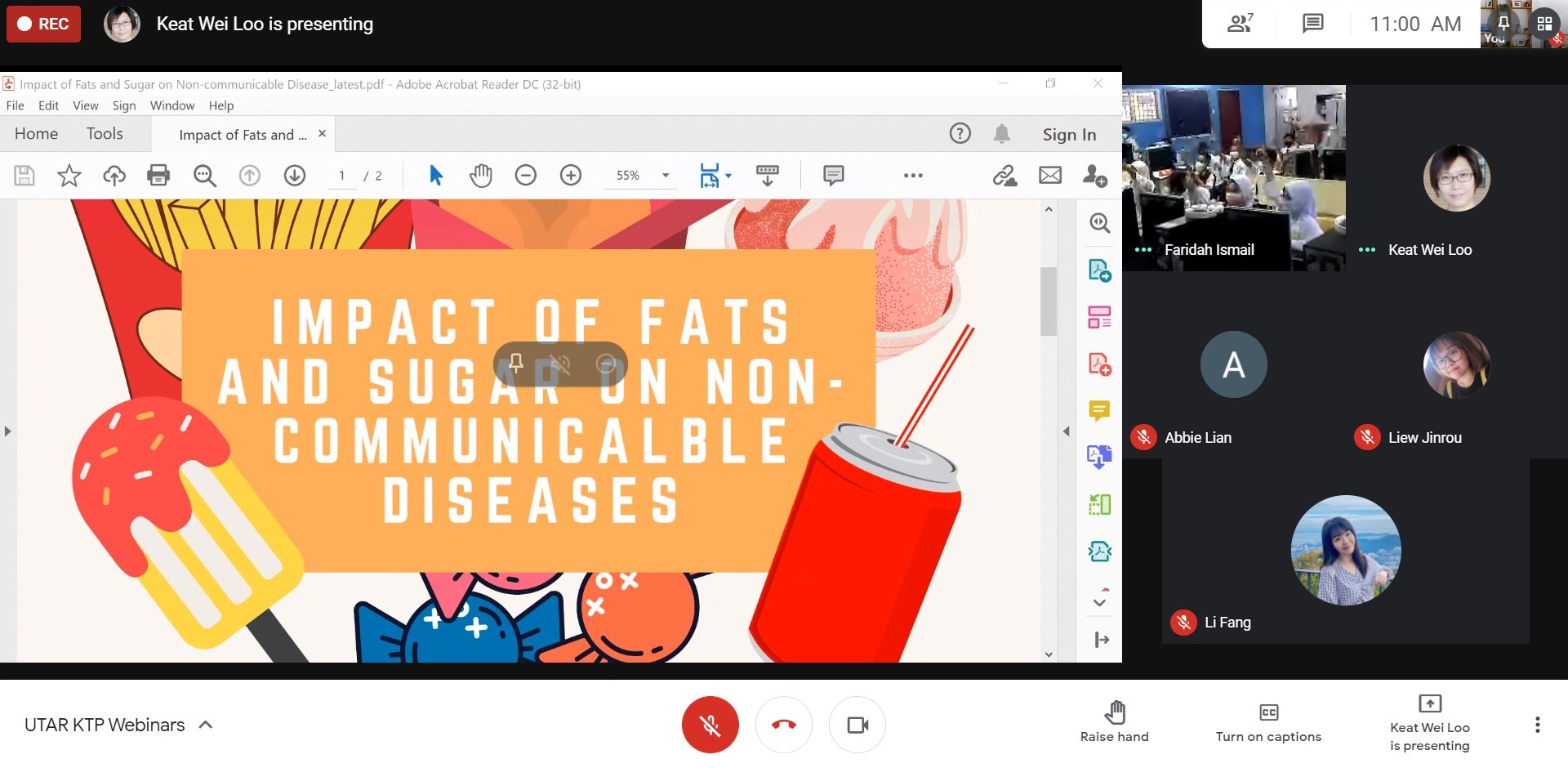
Dr Loo giving an introduction at the webinar
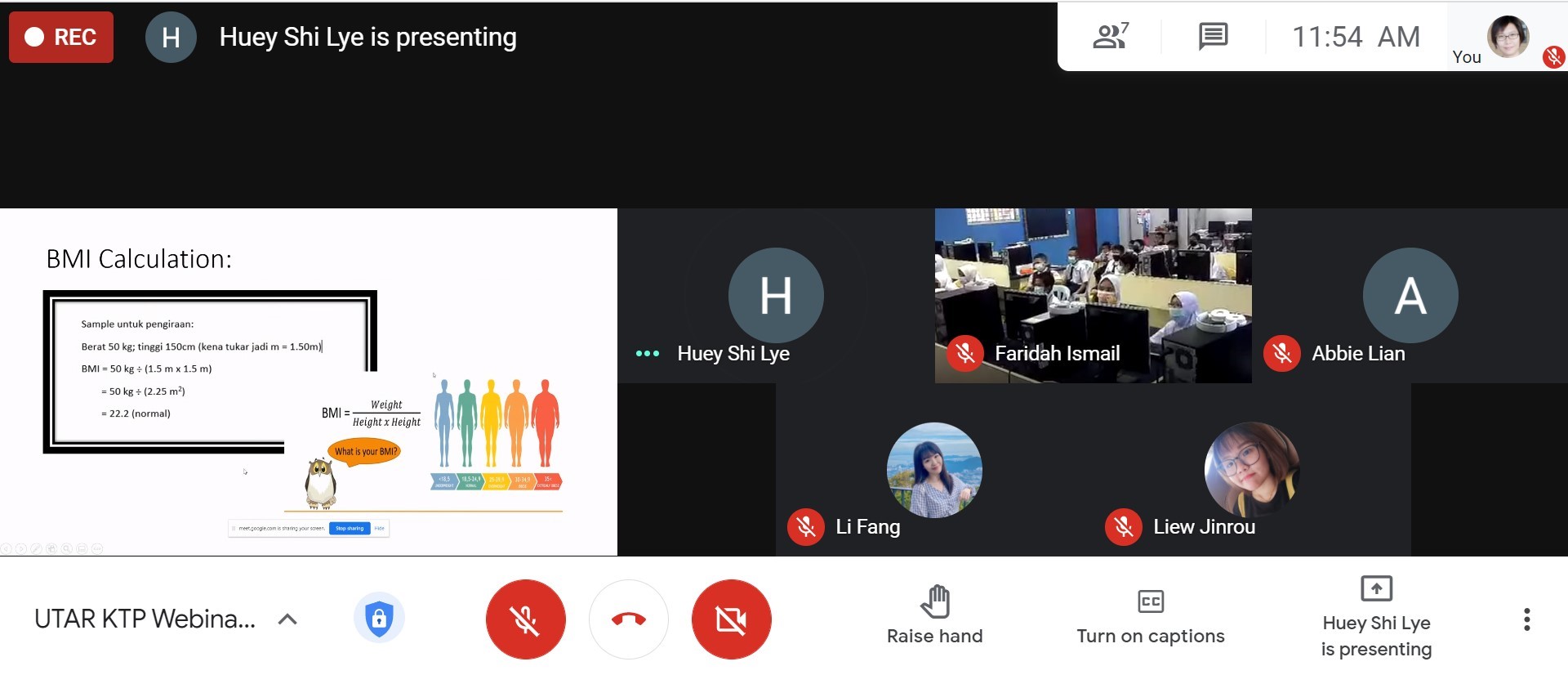
Dr Lye explaining to participants on calculating BMI
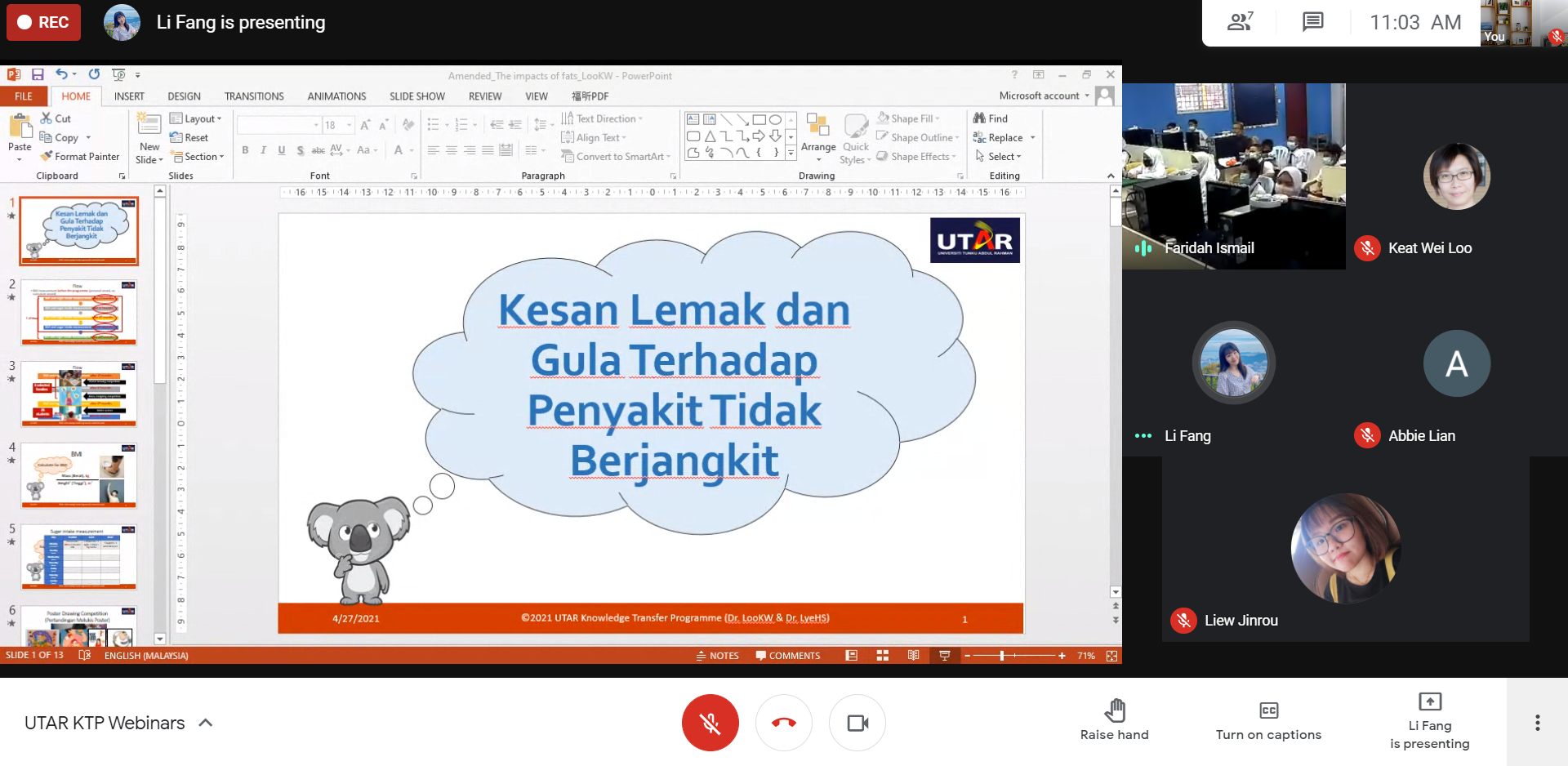
Lim sharing information on the impacts of sugar and fats on NCDs
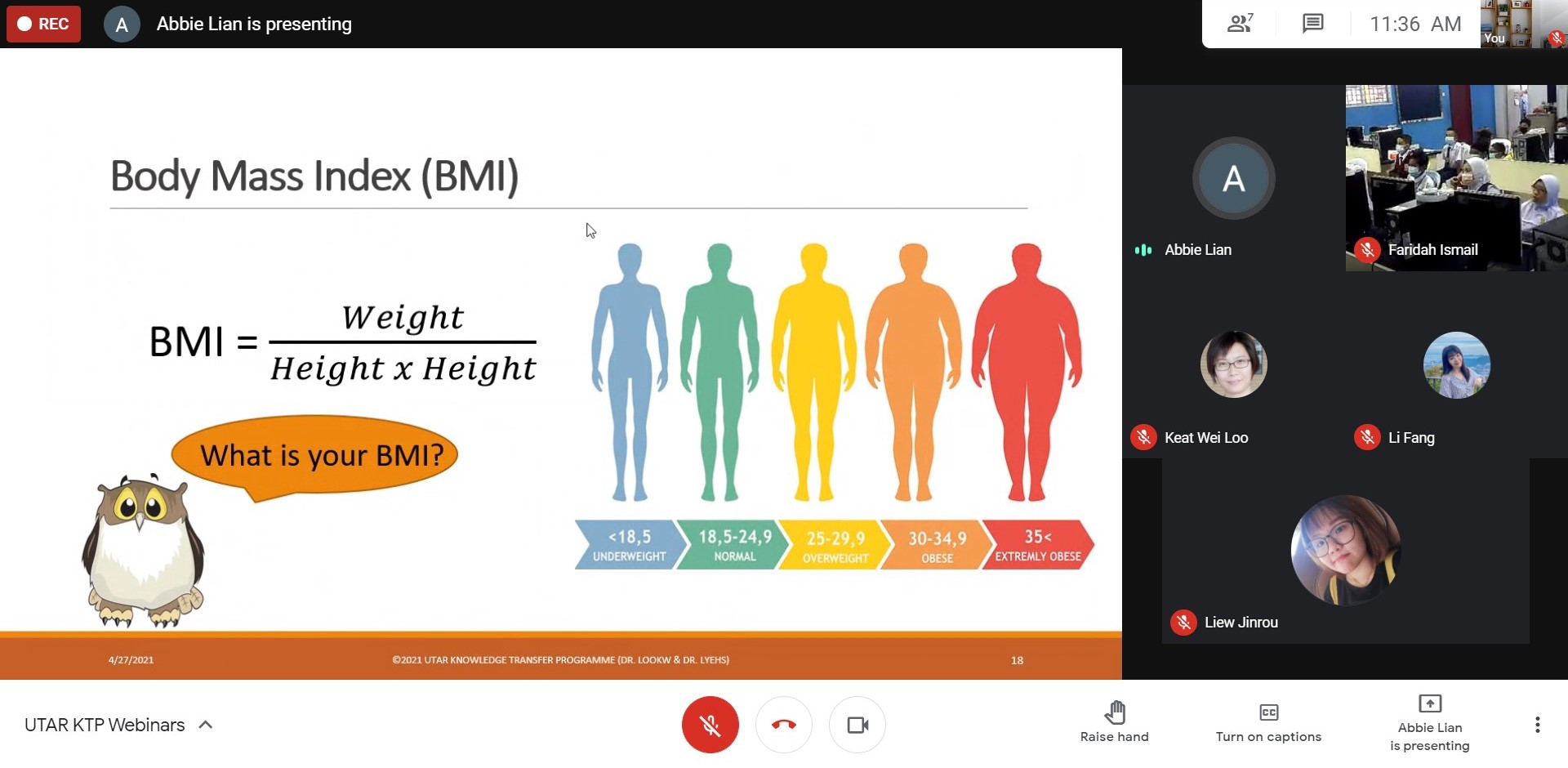
Lian explaining the importance of calculating and knowing one’s BMI
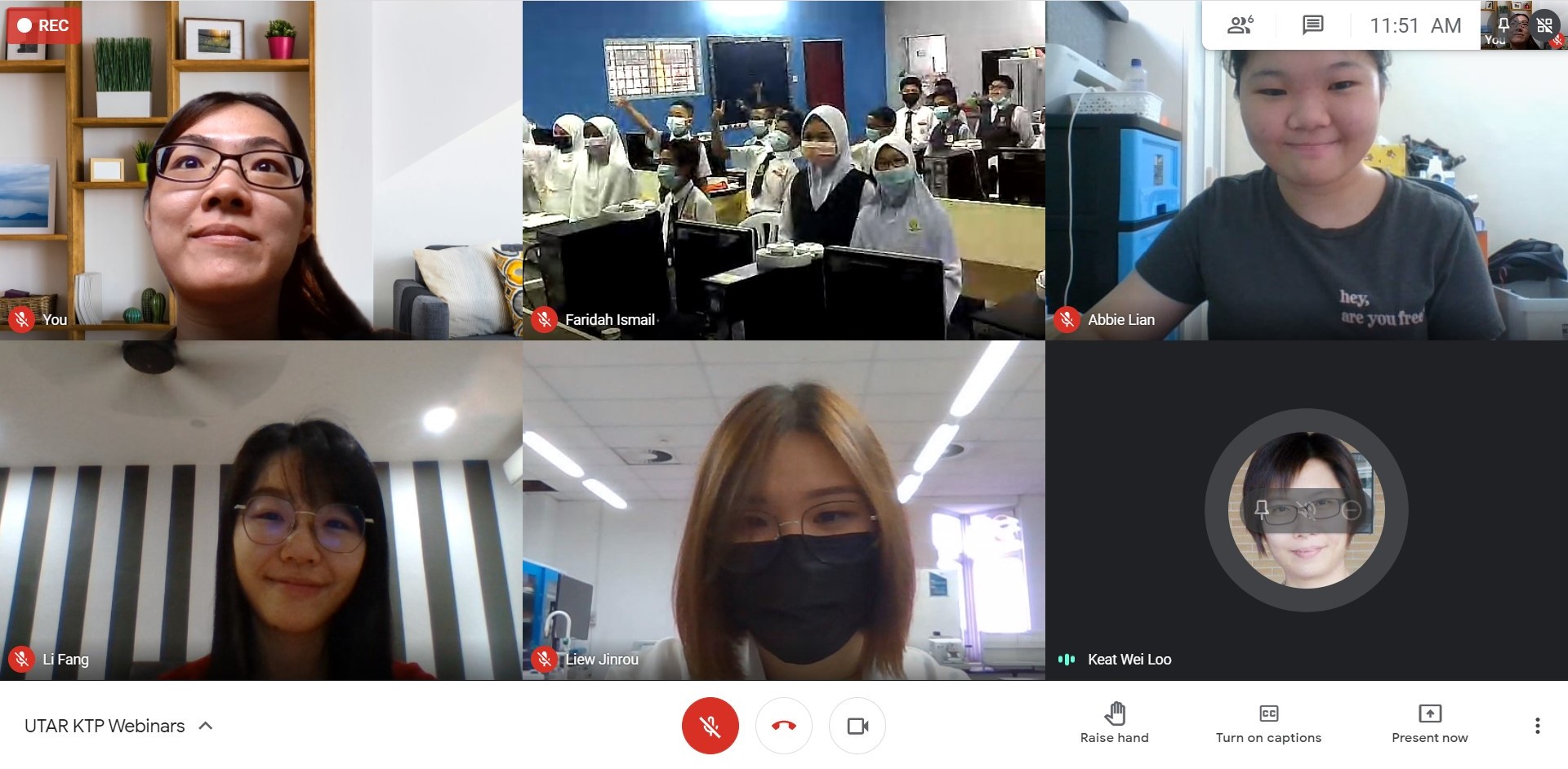
Clockwise from top left: Dr Lye, participants, Lian, Dr Loo, Liew and Lim
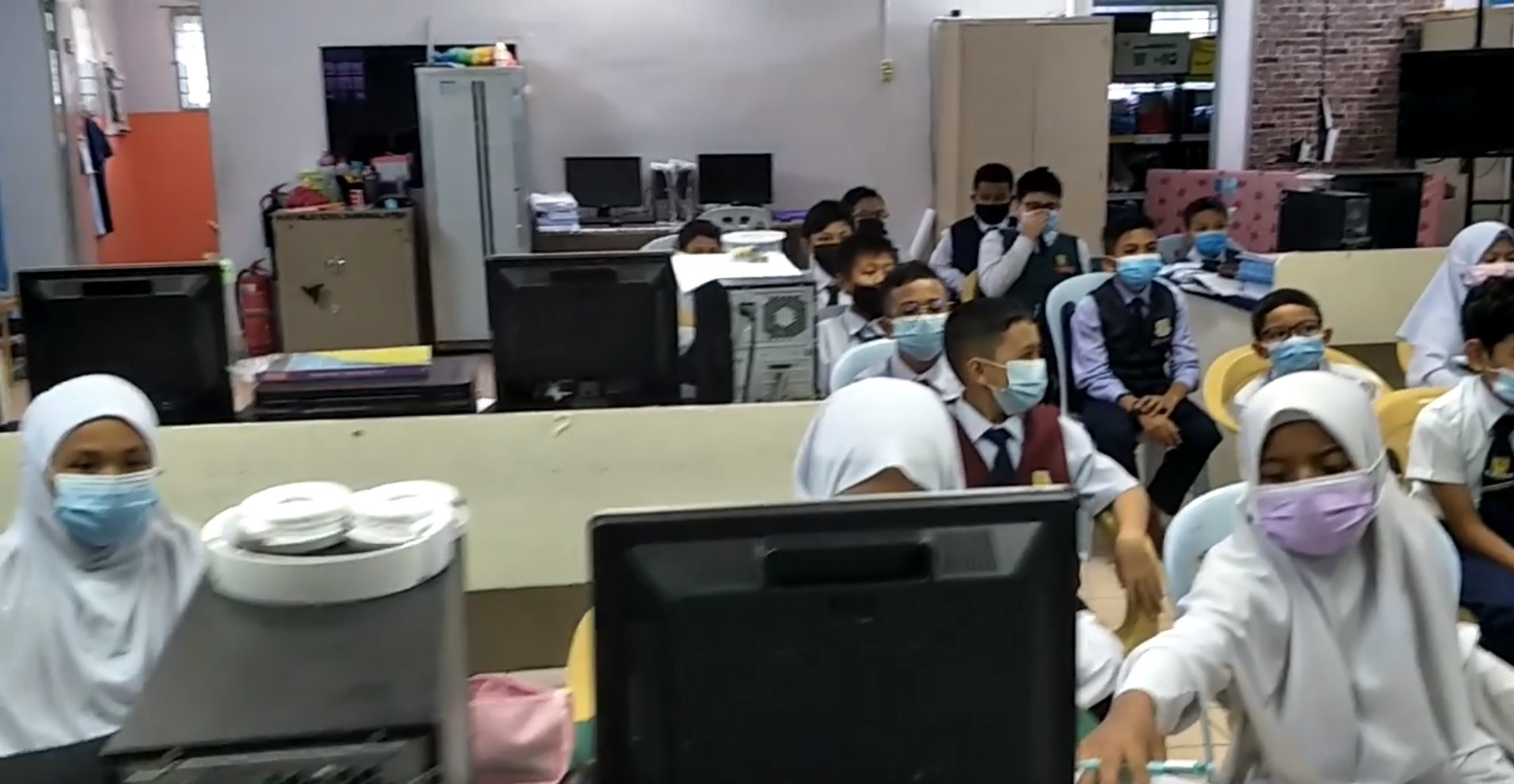
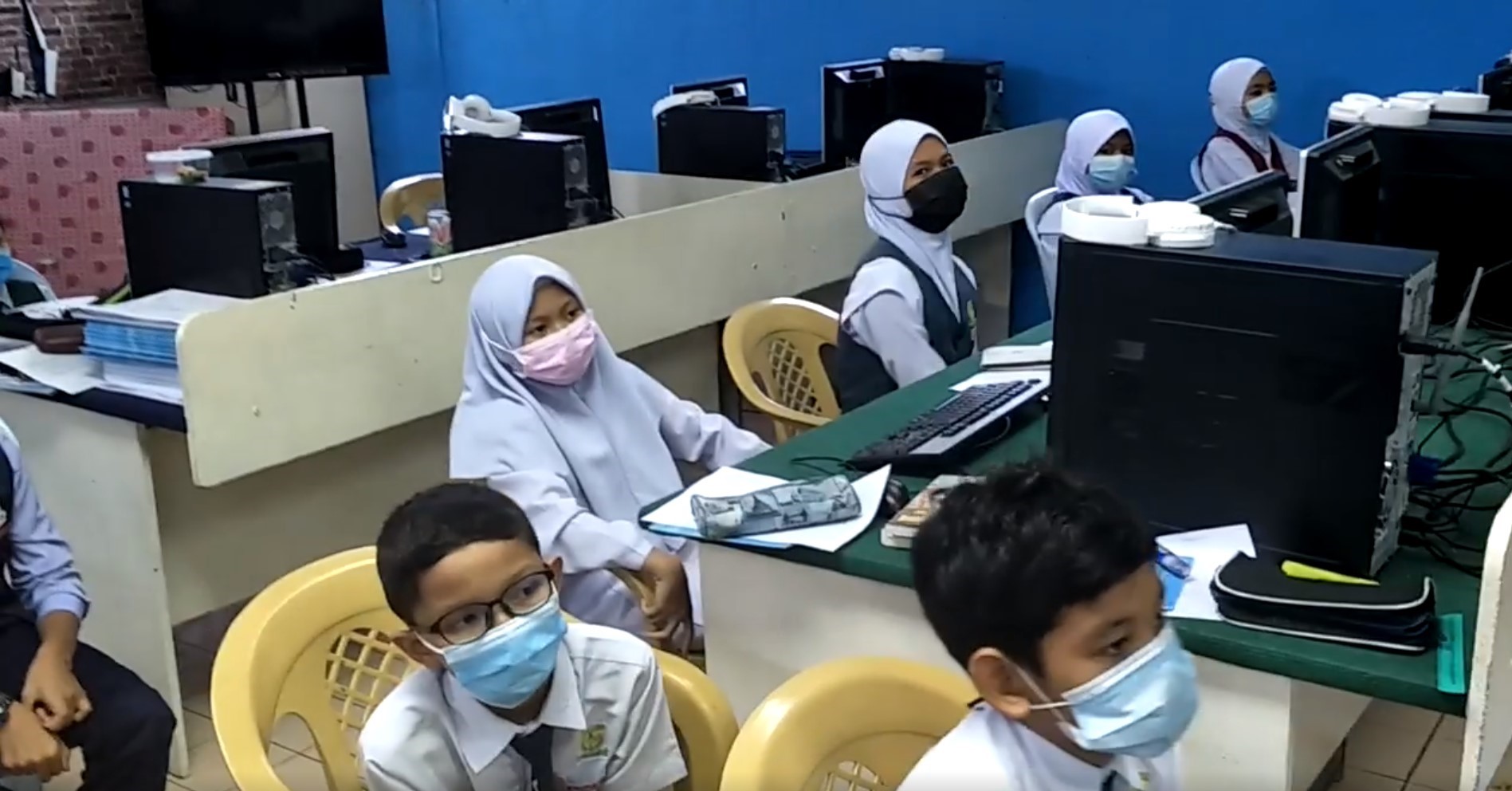
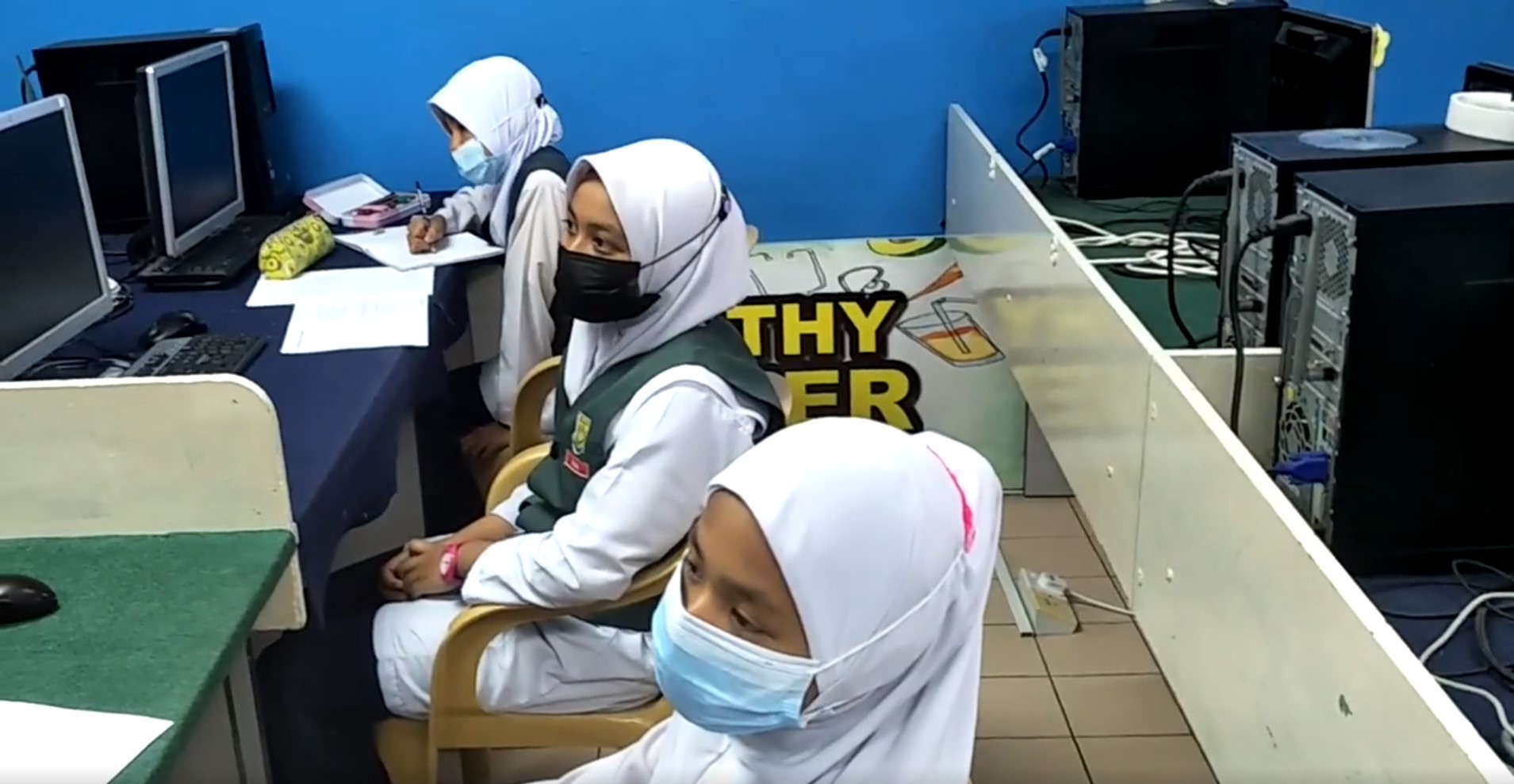
School children of SK Sungai Lesung Year 5 Taqwa listening attentively
(Photos taken at the school by Teacher Faridah)
© 2021 UNIVERSITI TUNKU ABDUL RAHMAN DU012(A).
Wholly owned by UTAR Education Foundation (200201010564(578227-M)) LEGAL STATEMENT TERM OF USAGE PRIVACY NOTICE